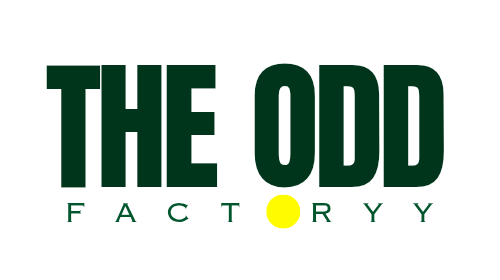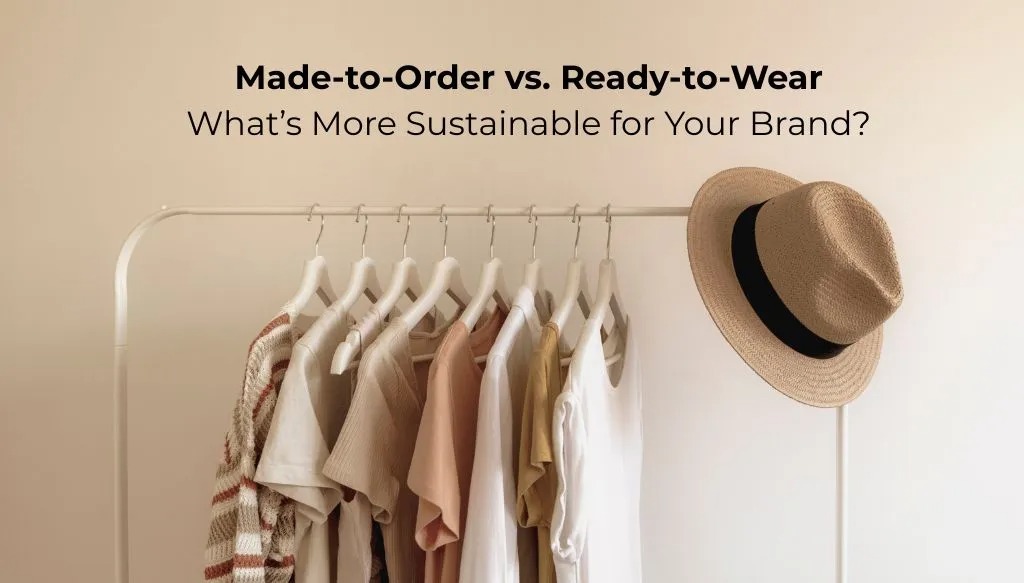In an era where sustainability is reshaping the fashion industry, brands are re-evaluating their production models. Whether you’re launching your first collection or looking to shift to a more eco-conscious approach, the choice between made-to-order and ready-to-wear is critical, not just for your business model, but for the planet.
Each path has its advantages, but when it comes to building a fashion brand rooted in responsible practices, which model is truly more sustainable?
The Basics: What’s the Difference?
Ready-to-Wear (RTW) collections are mass-produced in standard sizes and made available for purchase ahead of customer demand. It’s the traditional model most of the fashion industry has relied on for decades.
Made-to-Order (MTO) garments, on the other hand, are produced only after an order is placed. This model aligns production with demand and often includes custom or small-batch production.
The Environmental Cost of Overproduction
One of the biggest environmental issues tied to RTW is overproduction. Unsold inventory often ends up in landfills or gets incinerated, creating enormous waste. Even for brands using sustainable fabrics in India, the sustainability message falls short when thousands of unsold pieces are discarded season after season.
Made-to-order largely eliminates this problem. Since each piece is created only after it’s purchased, there is little to no inventory waste. Brands that work with sustainable clothing manufacturers in Mumbai and follow a made-to-order model significantly reduce their environmental footprint while ensuring transparency throughout the supply chain.
Operational Considerations: RTW is Faster, But Riskier
RTW’s biggest strength is speed and availability. Products are ready for immediate shipment, which fits the fast fashion and retail cycle. However, this speed comes at a cost, both environmentally and financially. Brands often end up with surplus stock, leading to markdowns and profit losses.
With MTO, brands have tighter control over production and materials. It’s ideal for smaller labels or those entering the market, especially with limited budgets. Working with a sustainable clothing supplier in Mumbai that supports made-to-order helps new fashion startups test collections without overcommitting to bulk production.
Technology’s Role in Enabling MTO
Thanks to innovations like digital fabric printing services in India, made-to-order has become much more scalable. Brands can now print customized designs on demand, reducing fabric waste and speeding up production timelines without compromising creativity.
At The ODD Factory, we’ve helped fashion brands use digital printing to produce unique, low-MOQ garments. This allows brands to release curated drops seasonally without the pressure of mass production.
Consumer Preferences Are Changing
Today’s consumers, especially Gen Z and millennials, care about where their clothes come from and how they’re made. The rise of slow fashion and sustainability movements has led to more people seeking traceable, ethical alternatives.
Made-to-order brands have a strong advantage in this space. Customers value personalization and the environmental responsibility that comes with on-demand manufacturing. Even if the turnaround time is longer, they’re willing to wait for something aligned with their values.
Sourcing with Intention
Regardless of which model you choose, sourcing sustainable fabrics in India and working with ethical partners is essential. RTW collections can still be eco-friendly if they are designed for longevity and produced with sustainable clothing manufacturers in Mumbai. MTO brands, meanwhile, have the chance to build their identity around conscious sourcing from the beginning.
Choosing partners who provide full transparency, use organic or recycled textiles, and minimize fabric waste is key. Sustainable doesn’t stop at the production model – it extends into the materials you choose and the stories you tell.
What’s Best for Your Brand?
If your fashion startup is just getting off the ground, the made-to-order model offers a smart way to test designs, build brand loyalty, and reduce upfront investment. It’s especially effective when paired with digital fabric printing services in India and a flexible manufacturer.
For established brands or those aiming for broader retail distribution, RTW might still make sense, but only if you pair it with sustainable clothing manufacturers in Mumbai who offer ethical labor practices, low-waste production, and fabric traceability.
There’s no one-size-fits-all answer. What matters is choosing a model that aligns with your mission, resources, and growth plans.
Get Expert Help from The ODD Factory
Whether you’re leaning toward made-to-order or ready-to-wear, structuring your brand with sustainability at the core is easier with the right partner. The ODD Factory’s Fashion Brand Starter Package is designed to help emerging designers and fashion entrepreneurs navigate the complexities of production, from tech packs to sourcing to strategy.
With years of experience working with both RTW and MTO models, we help you decide what works best for your brand, without compromising your values or your creativity.
Conclusion
In today’s fashion industry, sustainability isn’t a trend – it’s a competitive edge. Whether you choose made-to-order for its waste reduction or ready-to-wear for its scalability, what truly matters is how you structure your processes, select your materials, and communicate your mission.
From sourcing sustainable fabrics in India to partnering with the right sustainable clothing supplier in Mumbai, your journey toward ethical fashion starts with informed decisions and the right team behind you.



